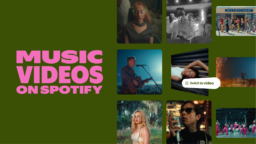Universal Music Group (UMG), the world’s largest music rights company, recorded a stellar Q2, but the company isn’t resting on its laurels, and has embarked on an ambitious campaign to shift the music streaming business to an “artist-centric” model.
And evidently, Spotify, the world’s largest subscription music streaming service, is one of the platforms working with UMG as it conducts its artist-centric research.
“They will be collaborating with us on deep data analysis, formally taking part in this foundational piece of our expanding artist-centric initiative,” UMG Chairman and CEO Sir Lucian Grainge told analysts on the company’s Q2 earnings call on Wednesday (July 26).
That’s just one of a number of highlights to be gleaned from the earnings call, during which UMG’s leadership went over an impressive array of financial results, including an 8.8% YoY jump in revenue, on a constant currency basis, to €2.697 billion (USD $2.93 billion).
Among the items driving that growth was a 13% jump in UMG’s subscription streaming revenues and 12.1% growth in its “Merchandising and Other” revenue segment, which Sir Lucian Grainge credited specifically to “a strong performance by Taylor Swift.”
(Swift is currently in the midst of her wildly popular “The Eras” tour.)
Grainge devoted a significant amount of time on the call to the company’s goal to move the streaming business towards an “artist-centric” model, and in so doing, dispelled any doubts as to just how serious UMG is about shifting it away from the “pro-rata” payment model that currently dominates.
To be sure, we’ve known for months that UMG had entered into talks with streaming services Tidal and Deezer to develop new arrangements for how artists are paid by streaming services.
Grainge, like many others in the industry, had previously talked about moving beyond pro-rata, under which the money raised by digital streaming platforms (DSPs) to pay to artists is pooled together and paid out proportionally according to number of streams.
Though it’s not entirely clear, for now, what this new artist-centric payment model will look like, we do know that it involves some form of additional compensation for artists that provide additional value – for instance, artists with whom listeners commonly start their listening sessions, or those who motivate consumers to sign up for a paid streaming subscription or to pay for higher-tier subscriptions.
The artist-centric approach is UMG’s strategy for addressing the problem of fraud on streaming platforms, including low-quality audio files getting uploaded to DSPs in order to rack up streams and take a chunk of the pro-rata payments the DSPs make to rights holders – thereby diluting the share taken by actual music artists.
It’s also the company’s way of addressing the issue of AI-generated music – as can be seen by Grainge’s repeated stressing of the fact that an artist-centric model would focus on paying “real” artists.
Grainge also told analysts on the earnings call that DSPs are increasingly on the same page with UMG when it comes to shifting to such a model.
Here are some of the other highlights from that call, on which Grainge was joined by UMG’s CFO and President of Operations, Boyd Muir, and UMG Executive VP and Chief Digital Officer, Michael Nash…
1. ‘Real artists with real fan bases’ must be ‘fairly rewarded for the platform engagement they drive’…
Speaking with analysts on Wednesday (July 26), Sir Lucian Grainge said: “We’ve learned that many of the platforms actually share our desire to update the streaming model and thereby improve the music experience that they provide to their subscribers.”
He added: “We’ve long believed that streaming monetization in both developed and emerging markets has significant upside, therefore, we obviously welcome Spotify’s announcement that they will increase prices in more than 50 territories, as well as YouTube’s announcement that they have raised the price of their subscription music service in the US.”
However, increasing average revenue per user (ARPU) is just one aspect of the artist-centric approach, Grainge said.
“First, we must ensure that real artists with real fan bases are fairly rewarded for the platform engagement they drive,” he added.
“Second… platforms need to apply stricter fraud detection and enforcement systems, removing incentives for bad actors, and protecting streaming royalties for legitimate artists. This includes ensuring real artists don’t have their royalties diluted by noise and other content that has no meaningful engagement from music fans.
“And third, better aligning the relationship between artists and fans by promoting greater discovery and promotion of real artists.”
“To summarize: Who are the winners under this new model? Simply, real artists. By which, I mean, artists at all stages of their careers, who are DIY, independent or major, who are real, actual human beings who have real, actual fans. Who are the losers? Those devoted to gaming the system, to committing fraud, and to flooding the platform with content that music fans do not want.”
“Who are the winners under this new model? Simply, real artists. By which, I mean, artists at all stages of their careers, who are DIY, independent or major, who are real, actual human beings who have real, actual fans.”
Sir Lucian Grainge, Universal Music Group
Notably, Grainge told analysts in his opening remarks: “Spotify shares these concerns and as a part of our newly expanded agreement, they have committed to continue to work to address them. In addition, they will be collaborating with us on deep data analysis, formally taking part in this foundational piece of our expanding artist-centric initiative.”
However, it appears that the industry is still some way off from signing any new payment agreements built around the artist-centric approach. Asked by an analyst as to what the timeline might be to get such deals done, UMG Executive VP and Chief Digital Officer Michael Nash said that getting a new framework in place is the work of years.
“The process is enabling us… to get a really good understanding of the specific ways that we can go about realizing the objectives that we’ve articulated,” Nash said.
“This is a multi-year project of market transformation, and it involves different dynamics, different determinations and different processes with various platforms.”
Michael Nash, Universal Music Group
The DSPs that UMG is working with are “collaborating with us on deep data analysis,” Nash added. “They are formally taking part in this foundational piece of our expanding artist-centric initiative.
“We do have an expectation that we are going to be able to advance from this stage of the project further forward, but… this is a multi-year project of market transformation, and it involves different dynamics, different determinations and different processes with various platforms.
“We have patience here, because we know how important this project is. And we know that many of our partners share our concerns and have rolled up their sleeves, and they’re working with us.”
Nor is UMG ready to talk about what an artist-centric model would mean for revenue.
“We’re at the point right now where we’re looking at implementation opportunities, but we’re not at a point where there is any revenue discussion associated with implementation,” Nash said.
2. UMG has a three-pronged strategy for global expansion
Grainge gave analysts on the call a rundown of UMG’s strategy for the company’s ongoing global expansion, which he described as a three-pronged process.
The first is “signing and developing local artists… in more developed music markets,” Grainge said.
“Second, by partnering with local labels to produce them with global promotion, distribution, and a full suite of artists services, and thirdly through M&A, that is, the acquisition of local labels, catalogs and artists services businesses.”
“We’re looking for substantial growth and activity, where we can lean in with our skill sets, with our teams around the world, for broadly great assets, great artists, as well as great entrepreneurs.”
Sir Lucian Grainge, Universal Music Group
As an example, Grainge pointed to UMG’s recent announcement that it’s acquiring majority control of Thailand-headquartered RS Group, which owns the second-largest music catalog in Thailand.
That transaction “will instantly make UMG the second-largest player in one of the world’s fastest growing music markets, and provide new energy… with the scale to make an even greater impact in Thailand, and outside of it as well,” Grainge said.
“We’re constantly on the lookout for similarly attractive M&A opportunities in high-growth potential markets, and whenever and wherever such an opportunity makes financial and strategic sense, we will pursue it.”
Grainge added that, with deals like this, “nothing’s formulaic… We’re looking for substantial growth and activity, where we can lean in with our skill sets, with our teams around the world, for broadly great assets, great artists, as well as great entrepreneurs.”
3. The streaming services’ price hikes will only have an impact on UMG’s revenue in Q4 and beyond
Asked by Bank of America analyst Adrien de St. Hilaire when UMG expects to see a bump in revenue from the price hikes announced by Spotify, YouTube and others, UMG’s CFO and President of Operations, Boyd Muir, noted that Spotify itself isn’t expecting to see a bump until Q4 of this year, and said UMG expects the same.
“We’re working through the details of what those [price hikes] mean,” Muir said. “It’s complicated a little bit by geography [but] the reality is you’re not going to see anything coming through until Q4 and 2024.”
And UMG doesn’t expect that higher revenue at Spotify and the other DSPs will translate into a higher rate of pay for artists and recording companies.
“Fundamentally, artists deserve price increases from which they will directly benefit, based on the compelling value proposition their content is creating for consumers.”
Michael Nash, Universal Music Group
Asked whether UMG expects higher rates of pay going forward, Nash said: “The simple answer is no.”
He added: “In terms of the relationship with respect to pricing, we’ve always been very clear that raising prices is not about the margin between labels and DSPs…. There’s a much broader set of interests that go into the conversation about pricing.
“And fundamentally, artists deserve price increases from which they will directly benefit, based on the compelling value proposition their content is creating for consumers. So we’re not looking at the equation around what’s happening to rates and prices in the marketplace as a battle for margin.”
4. Catalog acquisitions are ‘not a priority’ for UMG
One of the more notable moments on the earnings call came when UMG’s leadership team made it clear that UMG’s expansion plans don’t prioritize catalog acquisitions.
That might come as a surprise, given the boom in catalog acquisitions in recent years, of which UMG has been a part (as has, increasingly, private equity).
“While our name may get associated in the media with the acquisition of catalogs, we will continue to be incredibly selective when allocating our capital, and very large catalog acquisitions are not a priority, nor a necessity, for us,” Muir said.
Muir later added: “[Catalog] acquisitions are not really a priority… As you know, we have made some investments [that] are very, very selective and you have the best of the best, but the reality is they’re not a priority for us, and they’re not required… to drive our future growth.”
5. UMG is optimistic that TikTok, like YouTube before it, will become a partner in music
The recent “first-of-its-kind” deal between Warner Music Group (WMG) and short video social platform TikTok, under which WMG will license its music to TikTok, its new music streaming service TikTok Music, editing platform CapCut, and advertiser resource known as the Commercial Music Library, has many hopeful that this is the beginning of a new era for dealings between the recording majors and TikTok.
Yet, when asked about UMG’s talks with TikTok on the earnings call, Grainge gave a very interesting answer.
“I can’t talk about any specific platform negotiations, but what I can say [is] I feel strongly about this. I’ve spent my career fighting for artists, and the entire value of music. We know our artists’ music and what it’s worth to the billions of fans around the world. We can’t settle for a deal with any platform that doesn’t fairly recognize that value.”
We will leave it to you, dear reader, to decide what that comment says about the current state of talks between UMG and TikTok.
“We know our artists’ music and what it’s worth to the billions of fans around the world. We can’t settle for a deal with any platform that doesn’t fairly recognize that value.”
Sir Lucian Grainge, Universal Music Group
For his part, Nash took a broader view, comparing the situation with TikTok today to the one with YouTube years ago, when the video streaming service was seen by the music industry as something of a rogue when it came to paying artists for the music on its platform – before it became a significant partner for the recording companies.
“At that time, it was YouTube who was the partner where there was [a] concern with the value gap. Now we’re at the point where we have an excellent partnership with YouTube, and they have this stated ambition to be the leader in music monetization. So we believe that, by sticking to our principles in terms of fighting for the value of our artists’ content on our partner platforms, it’s possible to construct win-win partnerships.”Music Business Worldwide





